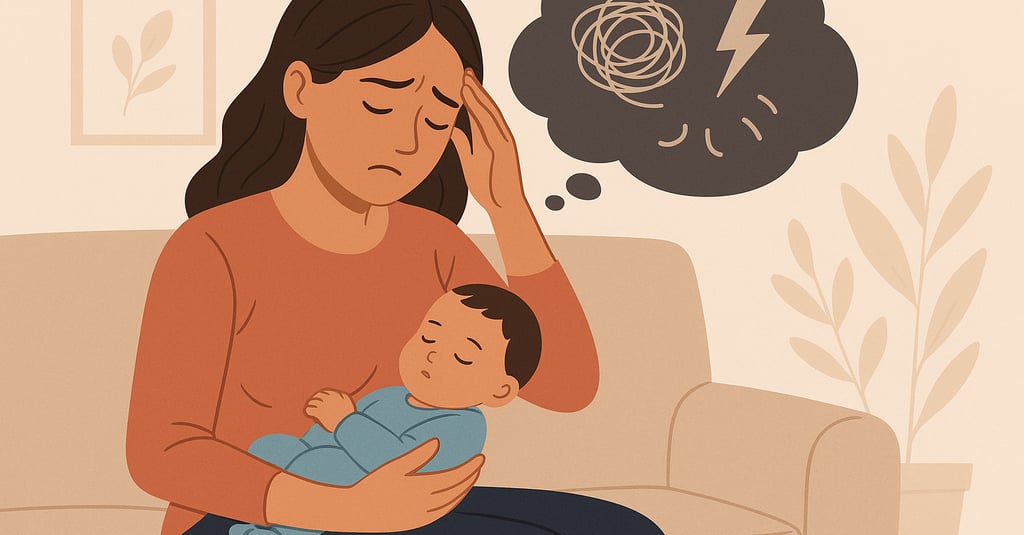Maternal Mental Health: Why It Matters for Family Well-being and Child Development
Maternal mental health is key to family well-being and child growth. Learn the risks, impacts, and ways to support mothers after childbirth.


Maternal health is not only measured by physical condition but also by mental well-being, which is often overlooked. Many studies show that mothers experiencing stress, anxiety, or depression are more vulnerable to health problems, and this can significantly affect their child’s development. Unfortunately, this issue is still considered taboo and rarely discussed openly in society.
Challenges in Maternal Mental Health
Some common issues faced by mothers include postpartum depression, anxiety during pregnancy, and emotional exhaustion from juggling multiple roles at home and work. According to WHO, 1 in 5 mothers in developing countries experiences mild to severe mental health disorders after giving birth.
Impact on Children and Families
Maternal mental health is closely linked to a child’s well-being. Depressed mothers may struggle to bond emotionally with their babies, which can disrupt growth, sleep patterns, and emotional development. In addition, family harmony may also be affected when a mother does not receive adequate support.
Risk Factors
Maternal mental health problems can arise due to various factors:
Biological: hormonal changes during and after pregnancy.
Psychological: past trauma, lack of support, or environmental stress.
Social: stigma, financial pressures, and cultural expectations of being a “perfect” mother.
How to Maintain Maternal Mental Health
Maintaining a mother’s mental health is not just her responsibility—it requires family and community support as well. Some effective strategies include:
Partner & family support: open communication, sharing household responsibilities, and giving mothers time to rest.
Professional counseling: seeking help from psychologists or counselors when feeling overwhelmed.
Self-care routines: getting enough sleep, eating nutritious food, light exercise, and personal relaxation time.
Community & support groups: sharing experiences with fellow mothers helps reduce feelings of isolation.
The Role of Health Workers & Policy Makers
Healthcare providers play an important role in educating mothers about mental health, especially during antenatal visits and community health programs. Governments are also strengthening mental health services as part of maternal and child health programs to reduce postpartum depression and improve family well-being.
Conclusion
Maternal mental health is just as important as physical health. With proper attention, family support, and access to professional services, mothers can face challenges with resilience. Supporting maternal mental health means securing a healthier, smarter, and happier future generation.
👉 If you need further guidance, don’t hesitate to consult with Bidan Anggra in Bandung.
Bidan Anggra provides education, counseling, and comprehensive maternal and child healthcare.
📞 Contact: +62 856-5929-8380
📍 Address: Jl. Soekarno Hatta, Gg. H. Hasan 2 No.9, Bandung
🌐 Website: bidan-anggra.net
